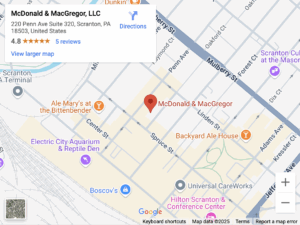
If someone is injured in a car accident or in another type of accident due to someone else’s negligence, the financial impact can be overwhelming.
From hospital bills to lost time at work, victims often face long-term financial struggles. In Pennsylvania, economic damages are part of a personal injury claim that helps victims recover these measurable losses.
This guide explains economic damages, how they are calculated, and why they are essential to personal injury cases.
How Are Economic Damages Calculated?

The calculation of economic damages depends on the circumstances of the case.
Courts and insurance companies rely on documentation and expert testimony to determine the full value.
Medical Bills and Treatment Costs
Victims can recover compensation for past and future medical expenses. Doctors and medical experts may testify about the expected cost of ongoing treatment, surgeries, or therapy.
Lost Wages
Lost wages are calculated using pay stubs, tax returns, and employer records. If the victim is self-employed, business records may be used to estimate lost income.
Loss of Future Earning Capacity
If an injury prevents someone from returning to their previous career or reduces their ability to work full-time, experts may project lost income over the victim’s lifetime.
Property Damage
Receipts, repair bills, or replacement estimates calculate losses for damaged vehicles or personal items.
The goal is to ensure victims are financially restored to where they were before the accident.
Why Economic Damages Are Important in Personal Injury Cases
Recovering economic damages helps victims cover costs that could otherwise lead to financial hardship. Injured individuals may be forced into debt or struggle to pay for basic needs without this compensation.
Pennsylvania has a two-year statute of limitations for most personal injury claims, meaning victims must file within two years of the accident to preserve their right to recover damages. Acting quickly helps ensure evidence is preserved and financial losses are fully documented.
Challenges in Proving Economic Damages
Although economic damages are based on measurable losses, proving them isn’t always straightforward.
For example:
- Insurance company disputes – Insurers may argue that medical treatment was unnecessary or that future costs are exaggerated.
- Difficulty documenting self-employment income – Business owners or freelancers may have trouble proving lost wages.
- Estimating future losses – Calculating long-term medical care or lifetime earning capacity often requires expert testimony.
Because of these challenges, working with an attorney can be crucial in presenting strong evidence for your claim.
Economic Damages vs. Non-Economic Damages
While economic damages cover financial losses, non-economic damages compensate victims for intangible harm such as pain and suffering, emotional distress, or loss of enjoyment of life.
Both types of damages work together to provide fair compensation, but economic damages are often easier to prove because they are tied to actual financial records.
Who Can Seek Economic Damages in Pennsylvania?
Not every situation qualifies for an economic damages claim. In Pennsylvania, victims may pursue compensation if their injury was caused by another person’s negligence or wrongful conduct. This applies to a wide range of cases.
For example:
- Car accidents – Including collisions caused by distracted or impaired drivers.
- Motorcycle accidents – Crashes that often result in severe injuries due to limited rider protection.
- Workplace injuries – When third parties are responsible for unsafe conditions or defective equipment.
- Medical malpractice – Injuries resulting from negligence by doctors, hospitals, or other medical providers.
- Premises liability cases – Such as slip-and-fall accidents caused by unsafe property conditions.
- Wrongful death claims – Families of deceased victims can pursue economic damages for funeral costs, lost household income, and related expenses.
In each of these cases, victims or their families may be able to recover the full range of economic damages available under Pennsylvania law.
How an Attorney Helps Prove Economic Damages
Calculating and proving economic damages often requires more than simply submitting receipts.
An experienced attorney can gather evidence, build arguments, and work with experts to show the full financial impact of an injury.
Steps an attorney may take include:
- Collecting documentation – Obtaining medical bills, employment records, tax returns, and receipts.
- Working with experts – Consulting medical professionals, economists, or vocational specialists to project future costs.
- Challenging insurance company tactics – Fighting against attempts to minimize payouts or deny claims.
- Presenting evidence in court – Ensuring jurors or judges understand the full extent of the victim’s financial losses.
Having a skilled attorney increases the chances of recovering full and fair compensation. Without professional guidance, victims may risk accepting less than they truly need to cover long-term financial challenges.
Contact the Scranton Personal Injury Attorneys at McDonald & MacGregor, LLC for a Free Consultation
If you or a loved one has suffered injuries in Scranton, PA, you may be entitled to recover economic damages that help cover medical bills, lost income, and future expenses.
An experienced attorney at McDonald & MacGregor, LLC can guide you through the legal process and fight for the compensation you deserve.
Contact McDonald & MacGregor, LLC today at (570) 209-7062 to schedule a free consultation and learn more about your rights.
If you’ve been hurt, don’t wait—reach out now for help protecting your financial recovery.

